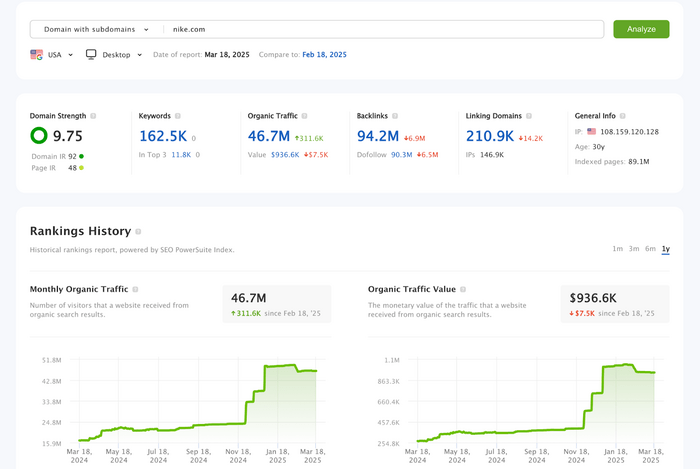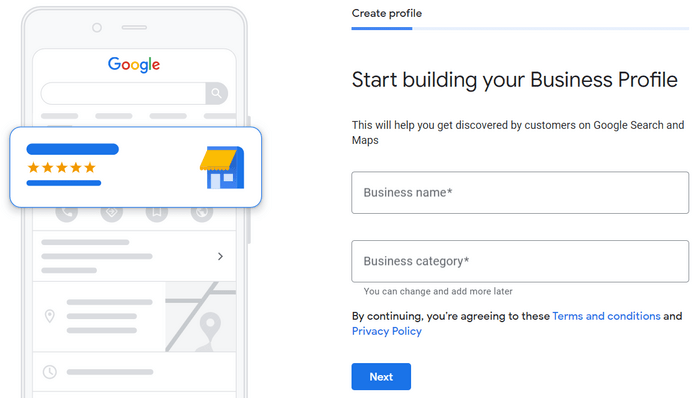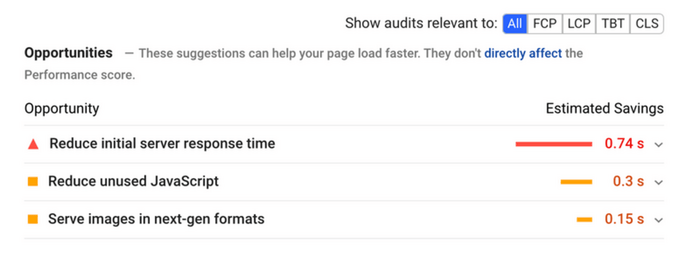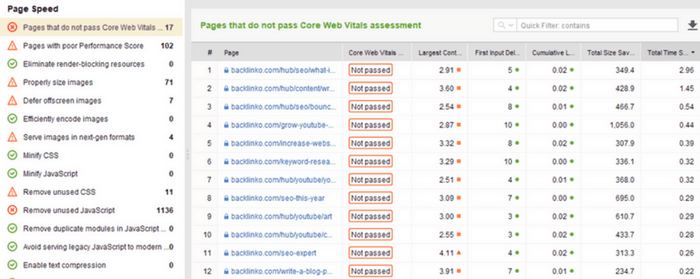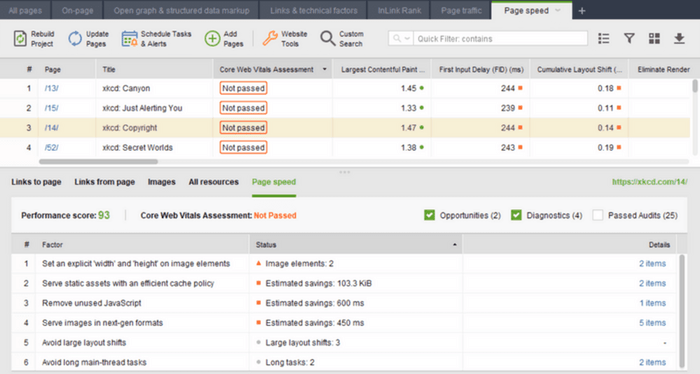Real Estate SEO: A Complete Guide to SEO for Estate Agents

Contents
- What is SEO for estate agents?
- Why real estate SEO is crucial for estate agents
- How to kickstart your real estate SEO strategy: Quick check of your status quo
- SEO for estate agents: A practical 21-step checklist
- 1. Start with a full website audit
- 2. Fix crawlability and indexing issues
- 3. Analyze your real SEO competitors
- 4. Define clear SEO goals and KPIs
- 5. Get smart with keyword research
- 6. Leverage long-tail, local keywords
- 7. Audit the keywords you already rank for
- 8. Create content that actually helps
- 9. Structure every page for search
- 10. Optimize your Google Business Profile
- 11. Build out local landing pages
- 12. Add Schema Markup to listings and pages
- 13. Get local backlinks that boost trust
- 14. Keep an eye on your keyword rankings
- 15. Use web analytics to understand user behavior
- 16. Improve your on-site search function
- 17. Test and tweak for better conversions
- 18. Make sure your website works on mobile
- 19. Speed up your site
- 20. Boost your E-E-A-T (Experience, Expertise, Authority, Trust)
- 21. Make your website accessible to everyone
- Final thoughts
Most estate agents still lean on referrals, flyers, and local networking events to bring in business. And while those methods still have value, they’re no longer enough on their own. Today’s buyers and sellers are starting online—long before they pick up the phone or attend an open house.
According to the National Association of Realtors (NAR), 96% of homebuyers used online tools in their home search in 2022. Even more telling, 41% of recent buyers began their search by looking at properties online, while only 18% started by contacting an agent directly.
If your website isn’t showing up when someone Googles “homes for sale in [City]” or “top estate agents near me,” you're likely invisible to a huge share of potential clients.
That’s where SEO comes in. This guide breaks down what real estate SEO actually is (in plain English), why it matters, and how you can use it to get found in local searches, attract serious buyers and sellers, and grow your business without relying solely on word-of-mouth.
What is SEO for estate agents?
Real estate SEO is the process of improving your website and online content so it ranks higher in organic (non-paid) search engine results—especially on platforms like Google, Bing, and Yahoo. The goal is simple: get found by buyers and sellers who are already searching for what you offer.
Unlike paid ads that stop generating traffic once your budget runs out, SEO focuses on long-term visibility by optimizing content across your website, blog, social media, and even mobile apps. When done right, SEO brings in consistent, high-quality leads without ongoing ad spend.
In the early days of SEO, rankings depended heavily on keyword density and backlinks. Today, search engines prioritize user experience, relevance, and content quality. That means your site needs to be fast, mobile-friendly, well-organized, and genuinely helpful to people searching for homes or agents in your area.
SEO is not a quick fix. It’s a long-term marketing strategy that aligns with your broader business goals—helping you grow sustainably over time.
Why real estate SEO is crucial for estate agents
Investing in SEO is one of the best ways estate agents can generate consistent leads without spending thousands on ads. Here are some key reasons why SEO matters for real estate professionals:
1. SEO brings in high-intent traffic
Homebuyers and sellers searching online are actively looking for properties or agents. By ranking for relevant search terms, you ensure your business appears in front of the right audience at the right time.
2. SEO reduces reliance on paid ads
Unlike paid advertising, which stops generating leads once the budget runs out, SEO delivers long-term results. A well-optimized website can continue attracting organic traffic for months or even years.
3. SEO improves local search visibility
Since most homebuyers search for agents in their specific area, appearing in local search results (Google Maps, local listings) is critical. Local SEO ensures your agency shows up when users search for "estate agents near me" or "real estate agents in [city]."
4. SEO enhances brand credibility
Ranking at the top of Google increases trust and credibility. Users tend to trust businesses that appear on the first page of search results more than those relying solely on ads.
5. SEO helps estate agents stay ahead of competitors
Many estate agents still overlook SEO, focusing primarily on traditional marketing. By implementing a strong SEO strategy, you gain an advantage over competitors who aren't optimizing their online presence.
How to kickstart your real estate SEO strategy: Quick check of your status quo
Before diving into any SEO strategy, it’s important to understand where your website currently stands. Think of it as checking your GPS before starting a road trip—you need a starting point to know which direction to head.
One of the easiest ways to get this snapshot is by using a domain analysis tool like Rank Tracker or similar platforms. These tools reveal valuable insights, including:
- Which keywords you're currently ranking for
- How visible your site is in search results
- How your performance stacks up against competitors
- Which high-value keywords you’re missing out on
Running a quick SEO audit gives you a clear view of what’s working and what’s not. It helps you prioritize your efforts, fix weak spots, and focus on what will actually move the needle—whether that’s better content, improved site structure, or smarter keyword targeting.
SEO for estate agents: A practical 21-step checklist
Let’s be real—real estate SEO can feel overwhelming. Algorithms shift, competitors adapt, and there's a sea of technical advice out there. But you don’t need to master it all at once. What you do need is a clear, realistic plan to start showing up where your clients are searching.
Here’s a roadmap to help estate agents build a solid SEO foundation that delivers long-term results.
1. Start with a full website audit
Before anything else, get a health check on your current site. Are pages loading fast? Any broken links or outdated redirects? Is your content crawlable? Tools like WebSite Auditor or can help flag technical issues, so you’re not building your SEO house on shaky foundations.
2. Fix crawlability and indexing issues
Once you’ve audited your site, tackle anything stopping Google from accessing and indexing your pages. That includes cleaning up 404s, redirect chains, orphan pages, and submitting a clean XML sitemap to Google Search Console.
3. Analyze your real SEO competitors
The agent down the road might be your business rival—but online, your top competitors could be national listing sites or local bloggers. Use SEO tools to see who ranks for your keywords, then reverse-engineer their strategy: what content are they publishing? Where are they getting backlinks?
4. Define clear SEO goals and KPIs
Don’t chase rankings just for the sake of it. Set goals tied to your business: more leads from organic traffic, higher visibility for local listings, or increased engagement on key pages. Track metrics like rankings, impressions, bounce rate, CTR, and conversions.
5. Get smart with keyword research
What are your potential clients actually typing into Google? Focus on keywords that match their intent—whether it’s “2-bed flat for sale in Brighton” or “best estate agent for first-time buyers.” Prioritize terms with realistic competition and high local relevance.
6. Leverage long-tail, local keywords
Don’t just go for “homes for sale.” Long-tail terms like “pet-friendly rentals in Camden Town” bring more targeted traffic and are easier to rank for. Local SEO for estate agents thrives on specificity—own your niche.
7. Audit the keywords you already rank for
You might be closer to page one than you think. Use tools like Rank Tracker or Google Search Console to find keywords you’re ranking for on page 2 or 3. These are low-hanging fruit—optimize and push them up.
8. Create content that actually helps
Think beyond listings. What questions do buyers and sellers constantly ask you? Turn those into blog posts, FAQs, and guides. SEO for estate agents works best when your content is genuinely useful and tailored to your audience.
9. Structure every page for search
Use clear headings (H1, H2, H3), relevant internal links, and focused meta descriptions. Make sure every page targets one primary keyword and stays tightly on-topic.
10. Optimize your Google Business Profile
Your Google Business Profile is prime SEO real estate. Add up-to-date photos, accurate opening hours, services, and contact details. Encourage happy clients to leave reviews—and respond to every one.
11. Build out local landing pages
If you serve multiple neighborhoods or towns, create dedicated pages for each one. Include local property highlights, testimonials, and market stats to boost local relevance and SEO rankings.
12. Add Schema Markup to listings and pages
Structured data (schema) helps search engines understand your content. Use real estate schema types like RealEstateListing and RealEstateAgent to show listing info, pricing, location, and more directly in search results.
13. Get local backlinks that boost trust
Local news sites, community blogs, event listings, or business directories can all link to your site. These backlinks help establish your authority and improve your SEO standing in local searches.
14. Keep an eye on your keyword rankings
Use rank tracking tools to monitor how your pages are performing. Set alerts for major drops or gains, and review monthly trends to spot what’s working—and what isn’t.
15. Use web analytics to understand user behavior
Where do users drop off? Which pages are they spending time on? Google Analytics and tools like Hotjar or Microsoft Clarity can show you how visitors interact with your site, helping you refine content and improve conversion paths.
16. Improve your on-site search function
If your site includes a search bar, make sure it actually works. It should return relevant listings and content. A poor internal search experience leads to high bounce rates—and lost leads.
17. Test and tweak for better conversions
Try different call-to-action buttons, images, headlines, or page layouts to see what resonates. A/B testing can help boost both user engagement and search performance.
18. Make sure your website works on mobile
With most property searches happening on smartphones, mobile-friendliness is critical. Your site should load quickly, display cleanly, and function smoothly on smaller screens.
19. Speed up your site
Page speed is both a ranking factor and a user experience essential. Compress images, enable browser caching, and use a CDN if needed. Google PageSpeed Insights will show you where to start.
Alternatively, you can use WebSite Auditor. The tool allows you to check all your web pages in bulk. There you can go to Site Structure > Site Audit and get a bulk page speed report for your entire website as well as view all affected pages — all from a single dashboard:
Or you can switch to Site Audit > Pages > Page Speed and view a list of pages opposite speed issues that affect them. Click on any page and you’ll also get a list of page elements that can be optimized for better performance:
20. Boost your E-E-A-T (Experience, Expertise, Authority, Trust)
Google values credible sources. Make sure your About page highlights your experience, awards, and credentials. Include client testimonials, clear contact info, and professional certifications.
21. Make your website accessible to everyone
An accessible website isn't just good practice—it’s the law in many regions. Use alt tags, proper contrast, keyboard navigation, and readable fonts. Tools like WAVE or Siteimprove can help with an accessibility audit.
Final thoughts
SEO for estate agents is a long-term investment that yields sustainable results. By implementing a solid SEO strategy, you can attract more clients, improve local visibility, and reduce dependence on paid advertising.
Start with keyword research, optimize your website, focus on local SEO, and create valuable content. With consistency and patience, real estate SEO can become a powerful driver of business growth.


